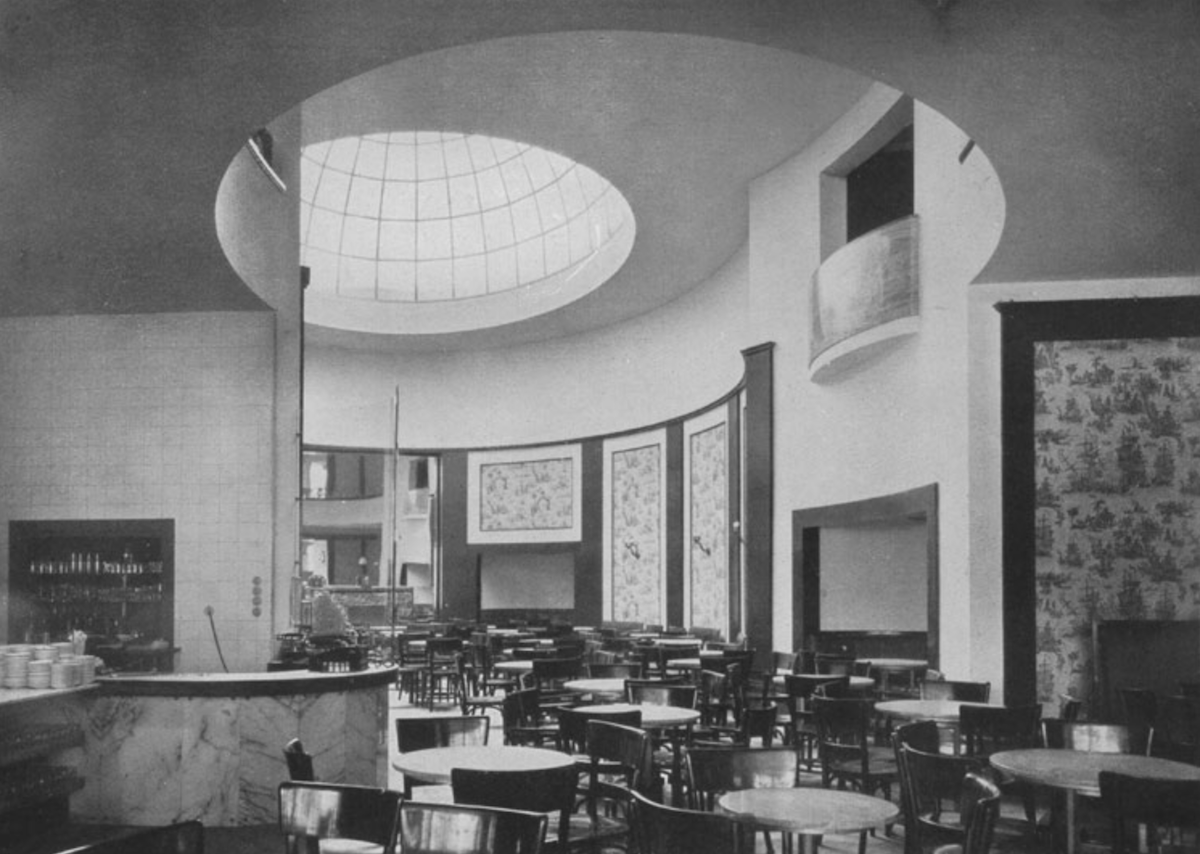A few weeks ago, I was standing on a little triangle of clumpy, unkempt grass between two plastic garbage cans and an electrical transformer on a street corner in Brno, the second-largest city in the Czech Republic.
Before World War II, this little patch of grass was the site of the Café Esplanade, a fancy coffee shop designed by a celebrated modernist architect, where the cream of Brno’s once-thriving Jewish community would go to read the papers, chat, and smoke. Later, they would begin to speak in hushed voices about what was going on next door in Germany and Austria.
One afternoon, in August 1939, a few months after the Nazis had taken full control of Czechoslovakia, a mob of Czech fascists, eager to impress their new Aryan overlords, stormed the cafe. They ransacked it, savagely beating the Jews they found there, killing at least one of them. Two years later, most of the survivors would be rounded up and deported to their deaths.
I’ve been thinking a lot lately about the story of the Esplanade, as a growing number of influential voices tell us that the current situation on American college campuses – where student-run Gaza Solidarity encampments and their supporters have clashed verbally and in some cases physically with some Jewish students and professors – is “like the 1930s.”
Last week, Israeli Prime Minister Bibi Netanyahu said it. This week, CNN anchor Dana Bash echoed it. Lots of less prominent voices are making the same comparison now. A woman at the recent United for Israel March at Columbia University told me the school itself had become “like 1939 Germany, and I don’t say that lightly.”
I don’t say this lightly either: Get a hold of yourselves.
There have certainly been incidents of overt antisemitism on college campuses. Some of them have been violent. This tracks a broader rise in antisemitic hate crimes in America, a trend matched by rising Islamophobic and anti-Palestinian violence as well. (Why should we distinguish between Islamophobic and anti-Palestinian violence? Read my friend Hani Sabra’s superb essay on that.)
But the “1930s”?
Let’s take a look at what was actually happening around the time that those Czech fascist goons showed up at the Esplanade.
A fanatically antisemitic government had, for six years already, been in control of the largest country in Europe. It had passed laws to discriminate against Jews, extended those laws to two other countries that it annexed (Czechoslovakia being one of them, Austria the other), and had already begun mobilizing paramilitary forces to destroy Jewish businesses and murder their owners.
There was a massive refugee crisis as hundreds of thousands of Jews tried, mostly in vain, to flee the Third Reich. In Berlin, meanwhile, the government was already readying plans to expel or murder millions more.
Does that really seem like an accurate comparison for 2020s America, where state and local authorities have, by contrast, deployed police to clear and arrest thousands of pro-Palestinian protesters who broke campus rules and, in some instances, harassed Jewish students? Are we really two or three years away from fanatical antisemites taking control of our country and sending the armed forces to beat, rob, and kill Jews? The US House of Representatives this week passed, with overwhelming bipartisan support, a bill to combat antisemitism that is so vaguely worded that it has raised First Amendment concerns. This is not the 1930s.
Many Jews are understandably alarmed and upset by what is happening on campuses across America. The sight of Jews encountering antisemitic discrimination or violence of any kind can trigger a deep fear, rooted in real historical experience. To deny or minimize any of that is its own form of anti-Jewish bigotry. Columbia and other schools are already facing a number of lawsuits over their alleged failure to adequately protect minority groups – including both Jews and Palestinians – during this period.
But the problem with the 1930s comparison isn’t just that it’s historically inaccurate, or that it trivializes and exploits the oppression and murder of millions of people, or that it’s an exaggeration that risks draining words of their urgency and their meaning.
It’s that it further poisons an already toxic, zero-sum discourse and deliberately opens the way to more violence. After all, if we are really in the anteroom of a second Holocaust, don’t existential threats call for extreme measures?
If you think so, let me invite you for a coffee at the Esplanade.
More For You
Tune in on Saturday, February 14th at 12pm ET/6pm CET for the live premiere of our Global Stage from the 2026 Munich Security Conference, where our panel of experts takes aim at the latest global security challenges.
Most Popular
In this Quick Take, Ian Bremmer weighs in on the politicization of the Olympics after comments by Team USA freestyle skier Hunter Hess sparked backlash about patriotism and national representation.
In July 2024, Keir Starmer won the United Kingdom’s election in a landslide. It has been downhill ever since, with Starmer’s premiership sullied by economic stagnation, intraparty fighting, and a lack of vision for the country.
